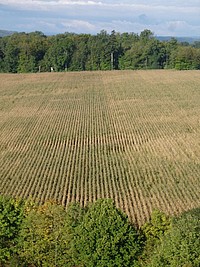Definition precision farming
What is precision farming?
The term precision farming refers to a farming management concept based on observing, measuring and responding to inter and intra-field variability in crops. Plant production is oriented towards identifiable units of land that are not exclusively based on property lines or on the expected average crop yield of a given field but on local and ecological conditions. The new technologies enable farmers to manage their fields based on the spatial variability of variables such as the availability of nutrients and expected crop yield. To a much greater extent than before, plant protection is guided by the pressure to avoid damage and economic efficiency. The precision farming method involves measures of small-scale soil cultivation, sowing, fertilization, application of pesticides and other operations.
Precision farming serves economic and ecological improvements:
- Reduction of resources (seed, fertilizer, pesticides, fuel,...)
- Reduction of machine and work hours
- Improvement of crop yield and crop quality
- Minimization of environmental impact
- Complete documentation of the production process

